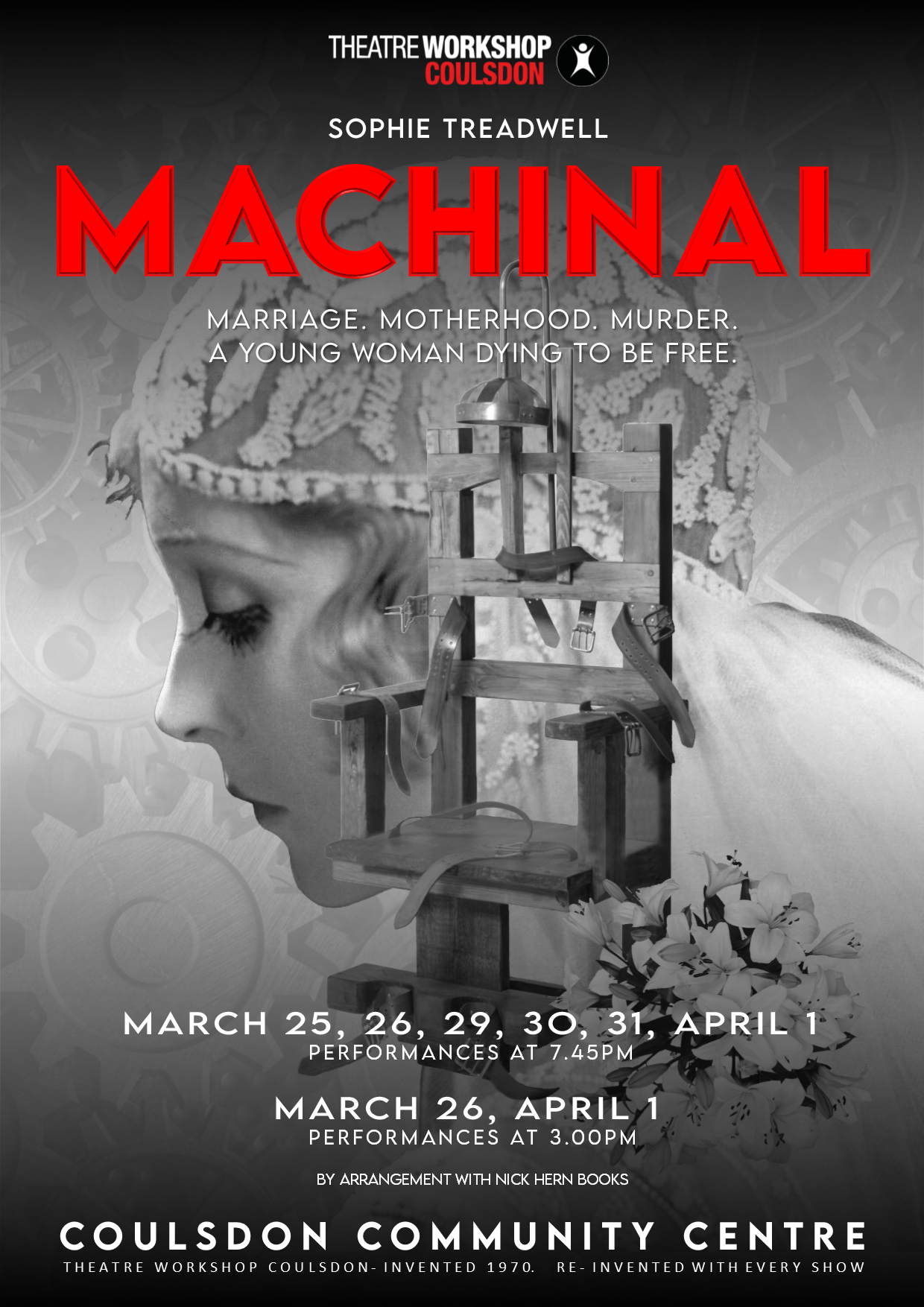MACHINAL
Tickets Gallery ReviewRegularly appearing on ‘The Best Plays of All Time’ lists, ‘Machinal’ is a vivid, unflinching portrayal of the life of a young, working-class woman in 1920’s America. Across nine tense episodes, we play witness to the key moments of her life – from marriage and motherhood, to adultery, murder, and its consequences. We see how women had to navigate a world run by men for men, in an increasingly mechanistic society demanding conformity.
Placing its young heroine at its centre, ‘Machinal’ traces her fight against the trap of a life predestined, as she hurtles toward her desperate and destructive attempt to break free.
It’s a brave, absorbing play that will stay with you long afterwards; unafraid to challenge its audience and to advance ideas that would have been seen as deeply controversial at the time, yet remain all too relevant today.
Journalist and playwright, Sophie Treadwell (1885 – 1970), placed women and marginalised voices front and centre of her stories. Today ‘Machinal’ (1928) is regarded as a masterpiece – an outstanding example of American Expressionist theatre. But in her day, Treadwell never achieved commercial success, and for much of the Twentieth Century her plays were rarely produced. Even today, her name is little known outside drama schools and histories of theatre. Slowly and rightly though, her ground-breaking early modern plays are now being rediscovered, performed and celebrated anew.
Scorziello steals the show as Coulsdon drama gamble pays off.
The latest play staged by Coulsdon’s high-achieving amdram group succeeds in its huge ambition, says KEN TOWL
“The people at Theatre Workshop Coulsdon are ambitious. Instead of the relatively light and broadly mainstream fare of amateur theatre, in Machinal, by American writer Sophie Treadwell, they have decided to stage an obscure piece of Expressionist theatre whose production, until recently, was only licensed to professional theatre companies. I was interested to see whether such a gamble would pay off.
Divided into a prologue and nine sections, each setting its own tone, each playing with exaggeration and symbolism, the work reflects a variety of moods, and these are expertly highlighted by the technical crew’s use of sound, light, shade and colour. Even the scene changes mirror the mood of the characters and the names of the scenes (for example, “To business”, “At home” and “Honeymoon”). And the performances?
Richard Lloyd visibly relished his role as the pompous and brittle husband. At times he channeled a subtly clowning Oliver Hardy, but he was able also to highlight the dark side of his character. In Machinal, as in Shakespeare, the worst deeds happen offstage, and we are left with our own imagination to fill in the gaps. Here, this was very much the case at the end of the “Honeymoon” scene.
The show is stolen, though, and inevitably so, by Indianna Scorziello in the lead role as “Young Woman”. The play makes huge demands on the role. She is the one character who appears in every scene and she makes her mark in the prologue, a stylised dance piece that introduces us to her at the beginning of her working day. In “To business” and “At home”, Scorziello impresses with her machine-gun delivery and distorted soliloquy, a Hamlet for the 20th century, spouting quickfire jazz-inflected musings on the meaning of (every woman’s) life. Scorziello sings, too, and she sings well, attempting the Spanish Cielito Lindo and its refrain of “Canta, no Llores” (Sing, don’t cry), or the nursery rhyme Hey Diddle Diddle which she somehow manages to imbue with just as much tragic emotion in the scene “Intimate”, perhaps the most optimistic of the play. Everything is relative, of course, and the scene ends ominously enough.
From the beginning, we know that this Everywoman will not end well and every scene takes her another step to her destiny. This is a world in which The Machine is fatal for women and when a character says in “The Law”, the penultimate scene, that “Every man is born free and entitled to the pursuit of happiness”, we hear that phrase as heavily gendered. In the final scene, “A Machine”, there is no hope left, no redemption, just the bleak message that all is not right with our capitalistic society.
In her programme notes, director Anya Destiney writes that she has “strived to… capture the climactic and tense unravelling of the Young Woman at [the play’s] centre”. Destiney and her crew have succeeded. The gamble has paid off. The play continues with performances at the Coulsdon Community Centre at 7.45pm this Wednesday, Thursday and Friday and then at 3pm and 7.45pm on Saturday. Go and see it. It will stay with you for a long time – £10 well spent”.
(From Inside Croydon, March 27, 2023)

